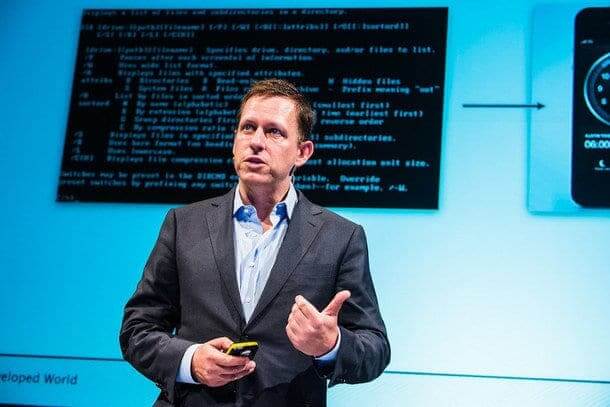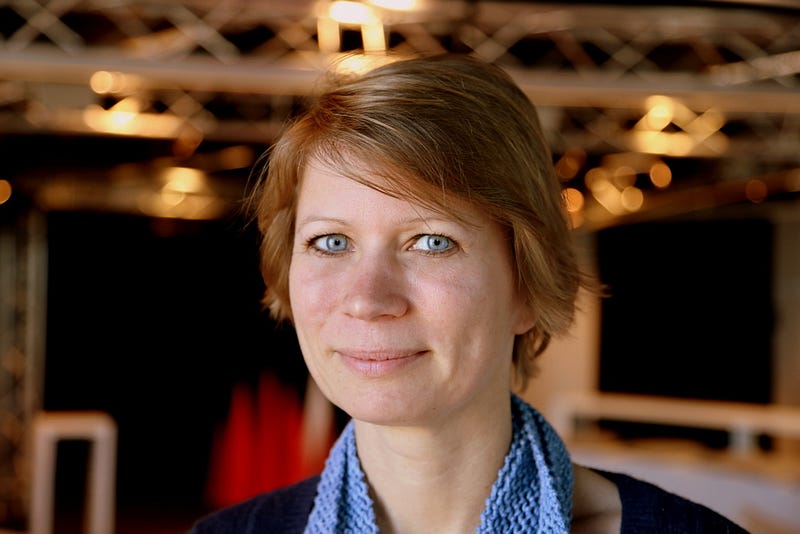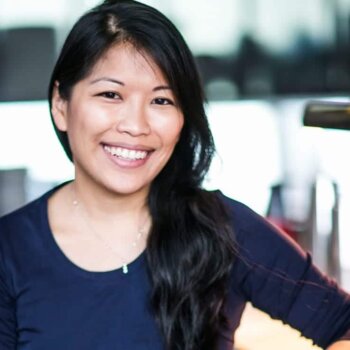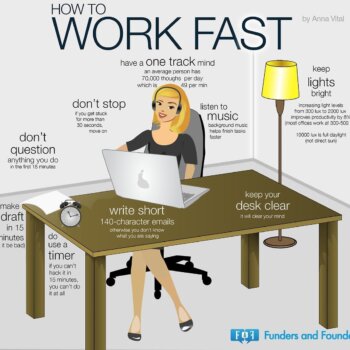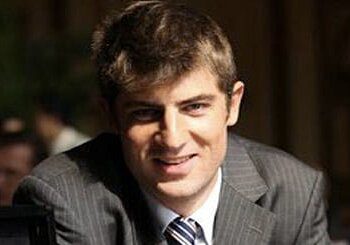Candace Johnson is someone who has made a global impact on our modern international telecom and broadcast business. She co-initiated the foundation of SES-Astra and SES Global, which today owns a fleet of 54 satellites and broadcasts 6500 TV channels. And she founded the world’s first Internet-based online service, Europe Online, making it into one of the first broadband Internet services.
But it was in her role as president of EBAN, the European trade association of several hundred business angels, which brought her to Eindhoven’s High Tech Campus recently. She explains why angel investors are making a difference to the global start-up scene and explodes several myths that surrounds the way they do business. She spoke with StartupDelta’s Jonathan Marks.
Building the match between angel investors and hardware startups
“People often think that angel investors are people who do investments around the corner, locally, or in services like e-commerce. To be frank, when the HTCE management told me that they were focussing on the hardware side of things, I was thrilled.”
“What I’m trying to do as President of EBAN, and having incubated MBAN (MENA Business Angels Network) and ABAN (African Business Angels Network) under my presidency, is to extend the scope of angel investments. The vast majority of angels are already tech savvy. But we need to educate our successful angel investors to invest more in hardware and infrastructure. We also need to help start-ups develop a pitch that speaks to the interests of angels, so they can get funding for their initiative.”
“We run the EBAN Training Institute with the goal of raising standards. We’re seeing more and more that the best angel investors are serial entrepreneurs. They bring their trusted network, expertise and experience to the table.”
“Money is important too, but it is not at the top of the list. Business angel investors are high net worth individuals who usually provide smaller amounts of finance (€25,000 to €500,000) at an earlier stage than many venture capital funds are able to invest. They are increasingly investing alongside seed venture capital funds.”
Angels are more important than most people know
“We follow the guidelines and standards developed by the European Venture Capital Association. For over seven years, during the depths of the financial crisis in 2008 until the recent recovery started, it was the angel investors who took over the role of early stage financing. More than €7.5 billion are being invested annually in Europe, with a sustained growth in recent years. Of that €5.5 billion comes from angels. In fact we have had to professionalize our profession to meet the demand of the growth in this early stage ecosystem.”
We always have an exit strategy
“Angel investors can only continue to invest if they have exits. I hear many people talk about investing. Only a few discuss exits. I want to change that. I also stress that proven entrepreneurial success is essential in order to become a member of our association. We need to ensure that useful “lessons learned” are shared with the start-ups. They are always based on hands-on real-world experience. We have no time for people who are using new blood to try and correct mistakes they made in their own failed companies.”
“EBAN was started in 1999 together with the European commission. For the first ten years, I think people were too focussed on the investing part. Now we need to focus on exits and returns on investment. Without returns, business angels are out of business. And remember there is only a short window of opportunity during which start-ups can scale-up to becoming global success stories”.
“Our feeling is that you should not make an investment in a company unless you can see the path for the exit. The exit may be a trade sale, an IPO, etc. The exit also does not have to be 100 %. It does, however, have to bring you a return on your investment so that you can continue to invest. This approach helps you focus on building great companies. There’s always competition in healthy markets, so no-one can afford to waste time. We’re not a charity; we’re doing this because we love building and financing global success stories. We’re therefore looking for companies with a real marketable product, not a prototype or a collection of well-presented ideas.”
Is there specific advice you can share with high-tech startups?
“In the last few years we’ve seen the rise of the accelerators alongside incubators. They have helped raise standards because a good idea needs to be validated by the market before it is the basis for a high-growth company.”
“As investors, we always need to see a start-up demonstrate that they have first clients and initial revenues. We’re not saying that they have had to scale or show market traction. But if we are going to put in our personal money, then we expect the founder to be resourceful enough to work out the first product, to have found the first clients and show us evidence of the first revenues.”
“The incubators who help get an idea into reality and the accelerators have been good at making startups better prepared for angel investment, offering the right coaching to turn an idea into a validated business. That means angel investors are better able to select the growth companies and focus on making a good return on their investment.”
“We recognise that young companies need to present their business proposition to the angels attending our annual conference. So we’ve created ways that teams get immediate, honest feedback on the quality of their business presentation. We have one full day of preparation and coaching followed by a Global Investment Forum. The best go on to pitch to the entire network. This year, the “company to watch” category was won by Hanneke Stegweg, who is the Dutch CEO of the iLost company. Together with Neelie Kroes, I am keen to see more women founders lead entrepreneurial teams.”
What needs to change for things to move faster?
“We held this year’s EBAN congress in Eindhoven at the recommendation of several members. They all work in the innovation and financing of innovation field. But this region also came up in our discussions with StartupDelta. We have worked closely with Neelie Kroes when she was with the European Commission.”
“We were tipped off to the High Tech Campus specifically by our Russian members: the Russian Business Angels and the Skolkovo Foundation who are building the Skolkovo science park just outside Moscow.”
“And last, but not least, I know Eindhoven from my work in telecommunications and broadcasting hardware field. We often came here to work with Philips on the establishment of the DVD and MPEG-4 standards.”
“During our visit to the Brainport area it was clear that there is more than enough money in the region and a healthy appetite to invest in innovation. But there are some caveats that we feel need to be addressed.”
“Frankly, I think we are rather tired of the “nice-to-have” e-commerce companies. We would prefer to reinvest in world-class companies who are building something tangible, solving a real-world challenge. They need to demonstrate they can scale and become global.”
“We can see that the efforts by many have helped to raise the bar in the Netherlands and that’s good news for everyone. But remember there is a difference between entrepreneurs and SME’s. Entrepreneurs are the only ones to change our world. They create large companies, worthwhile employment, and that grows into large revenues.”
Failure is not an option
“We should get rid of this talk of failure being an option. If you’re taking angel money, it is NOT OK to fail.”
“If you take third party money, you have a responsibility as an entrepreneur to do everything you can to make a return on the investment of your business angel. The media keeps talking about friends, family and fools. But that’s nonsense! Founders, families and friends build great companies!”
“I have always been a free marketer at heart. Europe and The Netherlands need to create nations of investors. I believe in the power of private sector-led investment. Government needs to follow the leads set by business angels, not the other way round. We are investing our own money and using our years of experience to scale up these companies. An entrepreneur who is not willing to work and dedicate her or his lives 24/7 to achieve the goal should look elsewhere for money!”
“We’re fortunate that the EBAN network acts as a magnet for excellence. We were honoured to have the President of the European Research Council and the Head of Technology Transfer of the European Space Agency address our Congress to show us where the technology trends are going and where we should invest.”
“From a venture and entrepreneurial financing perspective, we were most grateful to our colleagues from the United States who joined with our European, MENA, and African colleagues to set the bar high in creating, building and financing global success stories. Amongst those joining us in Eindhoven from the United States were the president of the Global Accelerator Network from the USA, the president emeritus of the Angel Capital Association of the USA, the President of Start-Up Angels and Board Member of Up Global from the USA. We also welcomed the President Emeritus of the Crowd funding association of the US as well as the chairman of New York Angels. And we were delighted with the presence of David S. Rose, the president of GUST.com. These are some of the world’s best experts in angel investing.”
“They all said they were pleasantly surprised by the high standard of the startups that came to Eindhoven from all over the world. It was well above what they had expected. Start-ups from Africa, Middle East and Europe traditionally explain what they do, rather than explaining to investors why their idea is important. But that’s changing rapidly for the better. Entrepreneurs are also getting better at defining what they need in order to scale-up.”
NEXT STEPS : It’s all about active networking
“I should explain that in expanding our reach in Europe, with have formed alliances with the European Space Agency and the European Research Council. They also have their own accelerators and incubators. I think the onus is on the angel investor community to help bring this scientific community to a higher level of entrepreneurship. They need to think about the market for their inventions from the beginning. I believe we can help these organisations filter out the very best ideas and give those the attention they need to scale ideas into real businesses. There needs to be a validated market need for the technology they are developing.”
“We have two main events. There is the annual EBAN congress, this year in Eindhoven and next year in Porto, Portugal. And we run the EBAN Winter University, this year running from November 17–19th in Copenhagen. We’re doing this with leading organisations active in Europe’s creative industries. And all this is in addition to individual events and competitions organised by EBAN members at a local, regional and national level.
Increasingly we’re assembling cross-border syndicates, both between European countries and increasingly inter-continental networks linking Europe with innovation hubs in Africa, Middle East and North America. As companies scale and go global, it is important they have access to an international shareholder network. It’s a softer landing when they cross continents.
We also believe there is a way in which we can build partnerships with techno-business parks around the globe, led by the flywheel initiatives shown by High Tech Campus Eindhoven over these very fruitful days in the Netherlands.
_________________________________________________________________
About the Author
This article was written by Jonathan Marks, Executive Director at Photon Delta. See more.
